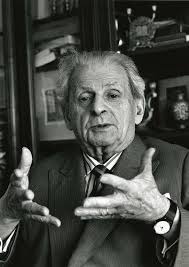
From the moment I discovered Philosophy I was struck by its critical emancipatory potential – its emancipatory potential following from its critical force. For all its biases, Western philosophy teaches a collection of answers to some pretty profound questions. The question in our present postcolonial context is whether the constituency of our intellectual endeavours – specifically also the students that we are teaching – are able to understand the questions, which we are addressing with our answers. Knowledge – and thereby I mean understanding – is a function of the sociology that necessitates it. As Van Binsbergen puts it: ‘it is pointless to study the contents of a philosophy in isolation – in vitro – without constant reference to the particular sociology of knowledge by which it came into being and by which it is perpetuated’. What is necessary for true understanding is being able to self-reflectively connect (1) knowledge of the sociological ground of knowledge production with (2) the modes of knowledge so produced and pursued. My research pilgrimage reflects a wrestling with ethical and political conceptual toolkits and an persistent need and repeated attemtps to put them to work within the context of our lived experience. The prevailing theme throughout is the relation between the Self and the Other and how their entanglement is complicated by the fact that they are always and necessarily bound to specific contextual forces and limitations.
Hence my GENERAL RESEARCH FOCUS falls within the field of practical philosophy, which should be understood in the two-pronged Aristotelian sense as referring to “Ethics” on the one hand, and “Politics” on the other. My doctoral research (completed in 2005) remains a pertinacious influence. Therein I came to a more specific understanding of ethics in terms of the work of two contemporary French philosophers, Michel Foucault and Emmanuel Levinas. In the work of Foucault, ethics is reconceptualized as the self-transformative labour through which the individual crafts him-/herself into an ethical subject. It therefore concerns the self’s relationship to him-/herself mediated by external frames of meaning-giving reference such as parental, societal and/or religious guidelines or prescriptive codes. Ethics as understood by Levinas, on the other hand, is primarily defined in terms of the self’s responsibility to others. Ethical action becomes possible when I put the interest of the other person before my own. Following Spinoza, Levinas argues that the pursuit of one’s own interest is absolutely necessary for persistence in being, for survival. The possibility of ethical action only becomes possible, however, when this drive to self-actualize is momentarily suspended – a moment of radical passivity – when one becomes capable of recognizing the needs of the other person. By way of a functional analogy, I attempted to think these two seemingly opposing approaches to ethics dialectically and came to the conclusion that self-concern is a necessary condition for other-responsiveness. In short, with the aid of an innovative comparative methodology, I came to the realization that self-centred and other-centred ethics are two essentially interdependent sides of the same coin.
To come to a deeper understanding of these two complex positions, my subsequent research focused on them independently of each other, while incorporating the insights gained through the comparative approach. It resulted in two mutually independent but complementary lines of critical scholarship: (1) a FOUCAULTIAN investigation of the political dimension of ethics, which supposes a critical engagement with the world beyond the self; and (2) a LEVINASIAN investigation of the conditions of possibility of ethical action. In the process, the discovery of the inextricable entanglement of the ethical and the political, of theory and practice, led to the emergence of a third line of scholarship: (3) the ETHICO-POLITICAL side. In short, my research may be understood as the consistent development of the complexities and complementarities of the political and ethical dimensions of self-other relations.
(2) THE POLITICAL (FOUCAULTIAN) SIDE: this line of inquiry was first pursued at the Jan van Eyck Academie, Maastricht, NL (2005-2006). It takes as its point of departure Foucault’s Nietzschean conviction and injunction that life itself should be taken as a work of art. An aesthetics of existence entails a stylization of one’s being through transgressive, self-transformative labour that facilitates resistance to normalizing power. It is therefore primarily concerned with the political or engaged dimension of ethical self-labour. Such an inquiry necessitates an engagement with the present. What are we today? How does our historical present – understood as a time in which neo-liberalism reigns supreme – impact upon our possibilities for being and acting in the world?
Maastricht, NL (2005-2006). It takes as its point of departure Foucault’s Nietzschean conviction and injunction that life itself should be taken as a work of art. An aesthetics of existence entails a stylization of one’s being through transgressive, self-transformative labour that facilitates resistance to normalizing power. It is therefore primarily concerned with the political or engaged dimension of ethical self-labour. Such an inquiry necessitates an engagement with the present. What are we today? How does our historical present – understood as a time in which neo-liberalism reigns supreme – impact upon our possibilities for being and acting in the world?
OUTPUTS: My inquiry into the culture and subjectivity of neoliberal governmentality (Phronimon, 2011) may be understood under this rubric. Like most concepts in Foucault’s diagnostic toolkit, governmentality is an analytical notion closely linked to changing historical rationalities of power, rather than a rigid descriptive mechanism that establishes one rationality of governing once and for all, that is the same for all times and places, and that infuses political orders in predictable, regular and uniform ways. This article utilizes a historical approach in which one epoch, notion or governing rationality is understood in terms of that which precedes it, acknowledging some continuity while respecting and reflecting on discontinuity and differences.
Other outputs that fall under this rubric include my analysis of the present state of the Humanities in SA (Journal of Humanities, 2012), as well as my critical attempt to grapple with the public role the intellectual today (Litnet, 2009).
(2) THE ETHICAL (LEVINASIAN) SIDE: this line of inquiry formed the focal point of my Veni-research project (2007-2012), which took as its point of departure Levinas’s conviction that a preconscious (passive) obligation towards others, rather than a conscious choice, is decisive for ethical action. Levinas’s ethical metaphysics is essentially a meditation on what makes ethical agency possible – what is it that enables us to put the well-being of another before our own.
(2007-2012), which took as its point of departure Levinas’s conviction that a preconscious (passive) obligation towards others, rather than a conscious choice, is decisive for ethical action. Levinas’s ethical metaphysics is essentially a meditation on what makes ethical agency possible – what is it that enables us to put the well-being of another before our own.
OUTPUTS: The edited volume, Radical Passivity. Rethinking Ethical Agency in Levinas (Springer, 2009) is certainly one of the crowning achievements of my research on the concept of ‘radical passivity’, through which I managed to secure a niche research agenda that have earned me respect among the top Levinas scholars in the world. The list of contributors to this volume attest to this (incl. Adriaan Peperzak, Alphonso Lingis, Betina Bergo and Sean Hand) as well as the peer recognition I have received by way of citations, invitations to inter- and national research fora and to contribute to edited books and journal issues in the field. One of the book reviewers hailed the volume as one of the first incisive works of what is undoubtedly an imminent wave of critical secondary literature on Levinas.
Another output is the Monokl article (2010) in which I excavate the subject’s oscillation between self-concern (activity) and other-responsiveness (passivity). The last few decades have been characterized by an overwhelming preoccupation with ethical concerns in a diversity of fields (including but not limited to Philosophy). Levinas’s thinking was certainly instrumental in the current resurgence of ethics, which has established concern for the Other as the virtually uncontested cornerstone of ethics. This article offers a critical revaluation of Levinas’s work distinguishing between his later work (with its emphasis on the Other) and his early works (with its emphasis on the self as necessary condition for assuming our responsibility towards the Other). Such a revaluation therefore provides a critical framework for fostering the recovery of ethics in and beyond the limited sphere of Continental philosophy.
Other outputs that belong in this category are the two articles (Filozofia, 2012 and Philosophia, 2016) in which I attempt to comprehend Levinas’s conception of Being and the interrelatedness of ontology and ethics, of Being and Otherwise-than-Being. The article on the enigma of ethical responsiveness published in Humanities & Social Sciences in 2016 also fits within this framework.
(3) The above two-pronged approach brought me face-to-face time and again with the necessary entanglement or conjunction of the ethical and the political and resulted in what may be termed the ETHICO-POLITICAL SIDE. Do these ethico-theoretical conceptual tools function in the socio-political world of action? And, inversely, how does the socio-political reality of praxis mar the practicability of theory? My 2009 book chapter in which I undertake a Levinasian analysis of the functioning of the veil – as concealment of the face; the 2014 article on the impact of Facebook on the face – as screening of the face by way of intermediality; as well as the 2009 article on the public role of the intellectual may be grouped here. Most significant in my opinion is the 2016 article published in the British Journal of Phenomenology in which I investigate to what extent a productive encounter between Levinas’s thought and non-Western postcolonial ethical frameworks and conceptions of difference and alterity is possible. In this article a question re-emerges in my research that was first articulated almost 15 years ago in my very first research output published in 2002. In that first article, two discourses were analysed, each of which outlining a certain interaction or proposed interaction between Africa and the Western world by way of global capitalism: “What I am interested in, philosophically speaking, is how this translates into different interactions between the Self and the Other, and with that I inevitably arrive at my ethical question: How does non-reductive communication between the Self and the Other become possible? In following Levinas I have started with the premise that when confronted by the Other I am ethically obligated to respond, but a response invariably amounts to a violation of his/her alterity. I found myself facing an insurmountable dilemma: both silence and response amount to violence. At this critical juncture I … attempted to deconstruct the two poles of our binary opposition, with the hope of going, with Nietzsche, beyond the proverbial ‘good and evil’ duality”. It would seem, then, that my research has come the proverbial full circle although the inherent contingency of context, of identity and alterity, means that the circle can never the closed, that this line of research inquiry is far from – if ever – exhausted!
or conjunction of the ethical and the political and resulted in what may be termed the ETHICO-POLITICAL SIDE. Do these ethico-theoretical conceptual tools function in the socio-political world of action? And, inversely, how does the socio-political reality of praxis mar the practicability of theory? My 2009 book chapter in which I undertake a Levinasian analysis of the functioning of the veil – as concealment of the face; the 2014 article on the impact of Facebook on the face – as screening of the face by way of intermediality; as well as the 2009 article on the public role of the intellectual may be grouped here. Most significant in my opinion is the 2016 article published in the British Journal of Phenomenology in which I investigate to what extent a productive encounter between Levinas’s thought and non-Western postcolonial ethical frameworks and conceptions of difference and alterity is possible. In this article a question re-emerges in my research that was first articulated almost 15 years ago in my very first research output published in 2002. In that first article, two discourses were analysed, each of which outlining a certain interaction or proposed interaction between Africa and the Western world by way of global capitalism: “What I am interested in, philosophically speaking, is how this translates into different interactions between the Self and the Other, and with that I inevitably arrive at my ethical question: How does non-reductive communication between the Self and the Other become possible? In following Levinas I have started with the premise that when confronted by the Other I am ethically obligated to respond, but a response invariably amounts to a violation of his/her alterity. I found myself facing an insurmountable dilemma: both silence and response amount to violence. At this critical juncture I … attempted to deconstruct the two poles of our binary opposition, with the hope of going, with Nietzsche, beyond the proverbial ‘good and evil’ duality”. It would seem, then, that my research has come the proverbial full circle although the inherent contingency of context, of identity and alterity, means that the circle can never the closed, that this line of research inquiry is far from – if ever – exhausted!